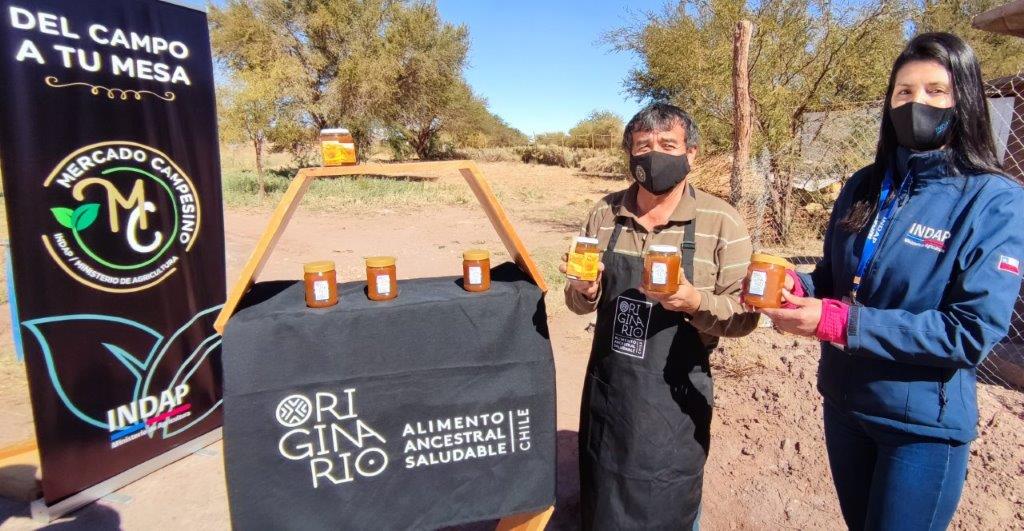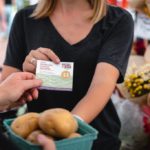With undisguised pride, Luis Escalante Pistán (64), a small beekeeper from San Pedro de Atacama, became the first agricultural entrepreneur in the Antofagasta Region to receive the Sello Originario in June 2021. This certification is included in the Healthy Ancestral Foods Program promoted by the Institute for Agricultural Development (Indap) and “Elige Vivir Sano” (Choose to Live Healthy) to rescue and promote the consumption of products that have been part of the diet of Chile’s indigenous peoples.
“I am grateful, because it is a recognition that one does not expect. I see it as a prize for perseverance for doing something well done and thus contributing to the rescue of natural foods,” says Escalante, who together with his wife, Elizabeth Astudillo Berna, has been dedicated to beekeeping for two decades in a green spot in the middle of the Atacama Desert, the driest in the world.
Through their enterprise, Apícola Checkar, the couple produces honey of botanical origin from the flora of the chañar, carob and alfalfa. They also produce pollen, propolis, soaps, shampoo, lip balms and candles, while their two daughters run a family hostel in the tourist town of El Loa Province.
Without knowing anything about beekeeping, Escalante was invited one day to learn about the work in the beehives and was delighted. “I was deeply touched, I was very happy, and I fell in love with the bees. It was a new world for me, because before I had worked with cows, pigs, rabbits, chickens, ducks, and turkeys, all on a small scale,” he says.
“I am grateful, because it is a recognition that one does not expect. I see it as a prize for perseverance for doing something well done and thus contributing to the rescue of natural foods.”
–Luis Escalante Pistán
After this experience, he started with two families of bees, and it took him three years to get his first harvest, which was for self-consumption. From then on, he didn’t stop. “I realized that it was a lot of honey for me alone, so I started doing business and it went well,” he says laughing. His production has unique characteristics, since the area is a geographic pot that has the bees circumscribed to the same place, feeding on typical desert species.
“It’s not easy to do beekeeping in the desert, mainly because of the extreme temperatures: excessive heat during the day and freezing cold at night, whether it’s winter or summer. Added to this is the scarcity of water, since the San Pedro river, which bathes almost 70% of the valley and allows us to have fruit trees, has less and less flow due to the decrease in rainfall in the mountainous area,” says Escalante, who today has 40 hives.

“Production here has never been stable; there are good years and bad years. The climate itself means that at the end of winter and the beginning of spring there is a loss of bees, which forces us to start from scratch every year,” adds the farmer.
For their productive development, the couple has had the support of Indap, a service of which they are beneficiaries, in infrastructure (storage warehouse) and beekeeping equipment, and during 2020, they had access to technical advice through the Indigenous Territorial Development Program (PDTI). They have also obtained support from Sercotec, Corfo and Fundación Minera Escondida.
They sell their products at the San Pedro de Atacama Farmers’ Market, on the first Thursday of every month, and in established stores in the commune: “It sells well here; this year the demand for honey has increased a lot”.
“My goal was always to stay in San Pedro, where I was born and raised. I didn’t want to go to the mining industry or to a big city. I only left the area to go to high school in Antofagasta, Calama, and Chuqui, and as soon as I finished I came back, because the desert is wonderful. And here I am, with my bees,” says Luis Escalante.
Farmers Market Associations of the world have come together to share best practices and encourage farmers markets around the globe






